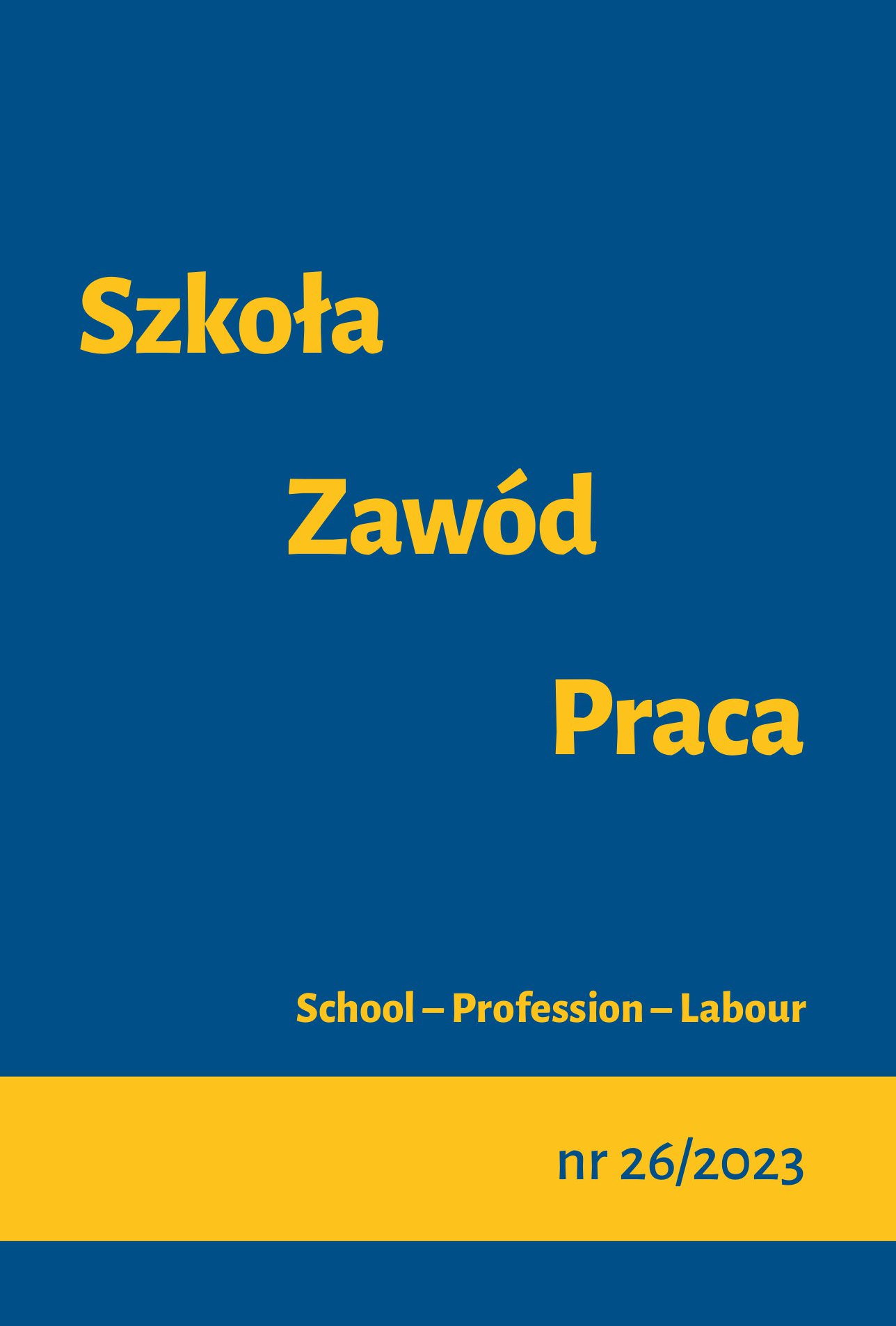Emotional intelligence of teachers and their openness to new experiences
DOI:
https://doi.org/10.34767/SZP.2023.02.14Keywords:
teacher, emotional intelligence, openness to experienceAbstract
The professional functioning of a teacher, their pedagogical effectiveness and the educational success of students largely depend on their emotional intelligence. Hence, in shaping the behaviour of students and young people, and especially in dealing with problems, an important role is played by the teacher’s way of experiencing the world and their openness to new experiences. The ability to effectively manage emotions prevents excessive levels of stress and, moreover, helps to deal with complicated situations during the lesson without negatively affecting the students in general. Recognizing the importance of this issue, also in the context of this journal, I undertook empirical research. I tried to determine to what extent openness to new experiences can explain the phenomenon of teachers’ emotional intelligence. The obtained results indicate that this is a positive relationship. The more teachers are open to new experiences, their adaptability increases accordingly, the ability to learn the value and importance of stimuli and events, mobilizing them to think and act as well as express their emotions.
References
Biernacka, R. (2017). Predykatory nonkonformizmu pozornego. Lublin: UMCS.
Costa, P.T., McCrae, R.R. (1999). The five-factor theory of personality . In: L.A. Pervin, O.P. John (Eds.), Handbook of personality: Theory and research . New York: Guilford.
Goleman, D. (1997). Inteligencja emocjonalna, przeł. A. Jankowski. Poznań: Media Rodzina.
Goleman, D. (1999). Inteligencja emocjonalna w praktyce, przeł. A. Jankowski. Poznań: Media Rodzina.
Grabowiec, P. Znaczenie inteligencji emocjonalnej w pracy nauczyciela. Edukacja Humanistyczna, 1(28) (2013).
Jaworowska, A., Matczak, A. (2001). Kwestionariusz Inteligencji Emocjonalnej. Podręcznik. Warszawa: Pracownia Testów Psychologicznych PTP.
Matczak, A. Różne oblicza inteligencji: funkcjonowanie intelektu a osobowość. Studia Psychologiczne, 2 (2001).
Matczak, A., Jaworowska, A. (2006). Dwuwymiarowy Inwentarz Inteligencji Emocjonalnej DINEMO. Podręcznik. Warszawa: Pracownia Testów Psychologicznych PTP.
Mazurek-Kucharska, B. (2006). Kompetencje społeczne we współczesnej psychologii i teorii zarządzania. Przegląd wybranych podejść i problemów. W: S. Konarski (red.), Kompetencje społeczno-psychologiczne ekonomistów i menedżerów. Teoria – badania – eduka-cja. Warszawa: SGH.
McCrae, R.R., Costa, P.T. (2005). Osobowość człowieka dorosłego. Kraków: WAM.
Przybylska, I. Inteligencja emocjonalna jako kluczowa kompetencja współczesnego nauczyciela. Chowanna, XLIX, 1(26) (2006).
Salovey, P., Mayer, J. Emotional Intelligence. Imagination, Cognition and Personality, 9, 3 (1990).
Simmons, S., Simmons, J.C. (2001). Jak określić inteligencję emocjonalną? Poznań: Dom Wydawniczy REBIS.
Strelau, J. (2002). Psychologia różnic indywidualnych. Gdańsk: GWP.
Strumska-Cylwik, L. (2005). Pomiędzy otwartością i zamknięciem. Kraków: Impuls.
Twardowska-Staszek, E., Alberska, M. (2020). Inteligencja emocjonalna i kompetencje społeczne nauczycieli szkół specjalnych. Studia Paedagogica Ignatiana, 23, 4 (2020), http://doi.org/10.12775/SPI.2020.4.005.
Wosik-Kawala, D. (2013). Rozwijanie kompetencji emocjonalnych uczniów szkół ponadpodstawowych. Lublin: UMCS.
Zawadzki, B., Strelau, J., Szczepaniak, P., Śliwińska, M. (1998). Inwentarz Osobowości NEO-FFI Costy i McCrae. Adaptacja polska. Warszawa: Pracownia Testów Psychologicznych PTP.
Zubrzycka-Maciąg, T., Kirenko, J. (2015). Asertywność nauczycieli. Badania empiryczne. Lublin: UMCS.


